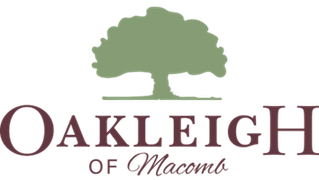When seniors begin experiencing memory issues like dementia or Alzheimer’s, it often brings a lot of changes in their lives. Family members may feel helpless, searching for ways to bring about a significant change in their loved ones’ lives. What they often overlook is diet—a powerful yet gentle tool. At Oakleigh Macomb, being a well-respected memory care community, we go beyond medication and generic routines.
We believe in the power of a healthy diet as a means of combating the various challenges that seniors with dementia and Alzheimer’s face. Thus, at our place, we care for residents’ comprehensive well-being by nourishing them with food that isn’t only flavorful but also healthy. Read on as we cover the best diet practices that home caregivers can also follow for their loved ones who are at the early stages of memory disorders. These practical diet tips would improve their overall well-being.
Choose A Brain-Healthy Diet Pattern
The key to providing the proper nutrition to those with dementia or Alzheimer’s or who are at risk of such conditions is to consume a brain-healthy diet. For this, the best recommendation is the MIND diet—a combination of the Mediterranean and DASH diets. It’s a hybrid between the two widely followed diets and focuses on consuming leafy greens, berries, nuts, whole grains, fish, poultry, and olive oil, while limiting red meat, sweets, and fried foods. Even a clinical trial showed that following the MIND diet brings significant improvements in one’s cognitive abilities.
What to Eat: Plant-based foods, whole grains, fruits, and vegetables.
Consume More Antioxidant-Rich Foods
It’s believed that oxidative stress is one of the most significant contributing factors to cognitive decline. Eating food items rich in antioxidants helps you ward off the probable damage to the brain cells that otherwise happens. Eating antioxidant-rich foods can support your brain health and potentially mitigate cognitive decline linked with memory disorders. Moreover, these antioxidant-rich foods are even found to improve cognitive function. Below, we’ve mentioned some of the options that you can consume throughout the day to get the most benefit from them.
What To Eat: Dark chocolate, berries, leafy greens, green tea, fatty fish, avocado, blueberries, goji, whole grains, beans, coffee, and nuts.
Focus On Healthy Fats, especially Omega-3s
Having healthy fats, especially Omega-3s, is suitable for seniors’ mental functioning in many ways. Healthy fats promote ample blood flow, which is crucial for delivering nutrients to the brain cells. Omega-3 fatty acids, particularly DHA and EPA, are necessary for brain function, as they have anti-inflammatory properties that help maintain healthy brain cell membranes. They facilitate communication between brain cells and potentially impact cognitive abilities like learning and memory. Moreover, Omega-3s even contribute to different aspects of brain health, including regulating oxidative stress and neuronal function.
What To Eat: Fatty fish, nuts, seeds, olive oil, avocado, peanuts, eggs, and dark chocolate.
Include Whole Grains, Beans, And Legumes In Your Diet
Whole grains, beans, and legumes are packed with nutrient content, making them perfect for brain health. Whole grains like quinoa, barley, brown rice, and oats provide sustained energy and reduce inflammation in the brain. On the other hand, legumes and beans are excellent sources of protein, fiber, and essential vitamins like folate. Eating them as a part of a daily diet helps regulate blood sugar levels, support heart health, and provide vital nutrients for optimal brain health. Preparing them is super easy, and they can be easily incorporated into daily meals.
What To Eat: Whole Grains—Quinoa, barley, brown rice, and oats, Beans and Legumes—Lentils, Chickpeas, Kidney Beans, Black Beans, Soybeans, Fava Beans.
Support With Essential Vitamins And Minerals
Just like other essential nutritional components, seniors need to meet their vitamin and mineral requirements. Failing to meet these needs can contribute to memory-related issues. They are a part of a healthy diet. Taking them means reducing the risk of facing such memory issues or at least slowing the disease’s progression. Vitamin B12, Vitamin D, Vitamin E, Omega-3 Fatty Acids, Zinc, Phosphatidylserine, and Folic Acid (Vitamin B9) are some of the components that a senior must take for optimal brain function.
What To Eat: Salmon, eggs, spinach, walnuts, pumpkin seeds, mackerel, chickpeas, avocados, fortified milk or plant-based milk, and lentils.
Hydration Is Key
While it may seem simple, it’s one of the most essential yet overlooked factors in a senior’s diet. Dehydration can cause issues like confusion, fatigue, and even some more severe symptoms in seniors with memory disorders. With aging, it’s common for seniors to forget to drink water as their sense of thirst declines. Proper nutrition is key to effective nutrient absorption. Water helps break down food, allowing the body to absorb nutrients into the bloodstream. Seniors should make hydration a daily priority to avoid complications.
What To Drink: Water, herbal teas, clear broths, or even water-rich fruits like watermelon and citrus.
Oakleigh Macomb—Where Meals Are More Than Just Food, They’re Care
At Oakleigh Macomb, we believe that deciding what goes on your loved one’s plate is an excellent way of caring for them during dementia and Alzheimer’s. We believe that proper nutrition is an essential part of caring for their condition. A diet rich in colorful veggies, fruits, healthy fats, and whole grains isn’t just good for the mind; it enriches the entire body. Using the right foods, it’s possible to enhance their daily lives.
This is what we all do at our memory care community, Oakleigh Macomb. Our team of compassionate caregivers works closely with families to ensure their every meal is tailored to their individual needs. For those looking for a memory care that cares for residents’ overall wellness, Oakleigh Macomb is here to help. Contact us today and find out how our dietary support can make a difference in your loved one’s journey.



